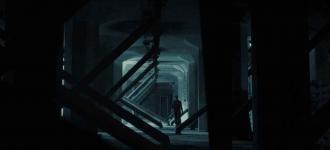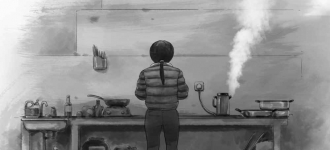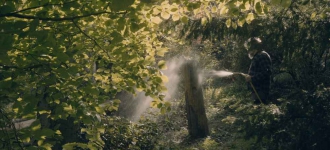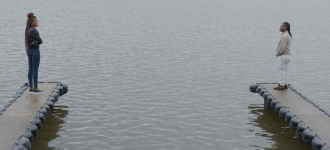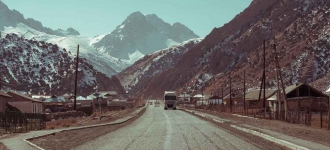Several of the films included in this year's debut film selection examine the challenge of contemporary family relationships, which are often captured by layering the past and present. For example, Last Call portrays a father who lost his illegally-acquired fortune, spent years in prison, and is now sorely missing from his sons' lives, while The Silence of the Banana Trees is about a lonely father who has spent years unable to make contact with his daughter, and Dear Daughter explains the relationship between a mother and her child born out of a forced marriage. These films all tell heartbreaking stories through subtly lyric and unique visuals, aided by photographs, faded video footage, and even black and white animation.
Family dynamics can be found at the heart and in the background of other films as well. Bloom and Light Falls Vertical address the audience with a personal tone and openness, exploring issues that are receiving increased public attention these days. While the former introduces the on- and offline world of adolescent girls, as well as the burden of social media on a younger generation, the latter examines the parallel stories of a domestic violence perpetrator and his victim. Snajka: Diary of Expectations traces the relationship between a Kosovar Roma man and his Croatian wife, from courtship through the birth and early years of their child’s life, as they navigate the crossfire of a multitude of individual, family, and community-cultural expectations. Even Chagrin Valley, an observational documentary about everyday life in a nursing home for elderly dementia patients, elaborates on parent-child relationships. The institution, designed to evoke 1950s America with its buildings, spaces and atmosphere, provides a quirky, fascinating, and floaty world for the film, in which a quiet rhythm is built upon wisps of presence and dream, timelessness, and subtle human manifestations.
Zsófia Paczolay's Budapest Silo creates an independent and remarkably powerful world that offers insight into the everyday operations of a grain silo in the capital. The protagonist, József, has worked in this amazing and strange place for more than 30 years, and has become an integral part of its structure. The film captures the unfamiliar face of a familiar city and paints a poetic, yet painfully honest vision of twenty-first century workers. Actor-director Tünde Skovrán (recently seen in Katalin Moldován's film Without Air [Elfogy a levegő]) directed Who I Am Not, a documentary of finding, living, and presenting self-identity through the lives of two intersex South African characters. And last but not least, Women Behind the Wheel, a documentary road movie by two British filmmakers, Hannah and Catherine, displays local women's stories and their fate along the Pamir highway in Kyrgyzstan, Uzbekistan, and Tajikistan.
Janka Barkóczi, Beja Margitházi, Balázs Varga
Selectors of the Student and Debut Film Competition

